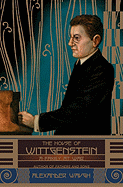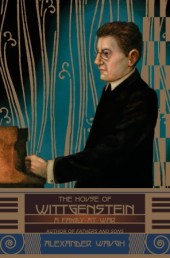
The House of Wittgenstein is as beautiful and well-appointed as the fabled primary Viennese residence of the Wittgenstein family; Alexander Waugh's 69 chapters are dazzlingly written, and each one draws readers deeper into the labyrinthine corridors of this fascinating, tragic family saga. 
By that impossible standard, all the offspring would be found wanting: no matter that Paul, the second youngest child, became a world-renowned one-handed pianist after he lost his right arm in World War I, and Ludwig, the youngest, wrote Tractatus Logico-Philosophicus, one of the greatest and most confounding philosophical treatises of the 20th century.
Waugh tellingly contrasts the public face of fame and achievement with private torment for Ludwig and Paul. Ludwig, consumed by extreme narcissism and self-loathing, was celebrated as a genius and an intellectual giant in England yet regarded as a clown by his poisonously critical siblings. Paul in concert was warm, commanding and adored by audiences but tyrannical, impatient and fanatically secretive within the family. The surviving daughters suffered less dramatically from the family paradox, but nobody in residence at the Palais Wittgenstein was ever at ease with themselves or anybody else.
Despite sibling warfare and their distaste for each other, the Wittgensteins were alone in the world with each other--until the rise of Hitler and the Anschluss of 1938. The Wittgensteins had never considered themselves Jewish, but the Third Reich held another opinion--the 1935 Nuremberg Laws declared anybody with three grandparents with Jewish blood to be Jews.
If Waugh is brilliant at portraying the paralyzing legacy Karl and Leopoldine trained into their unfortunate children, he is stupendous in narrating the desperate efforts the Wittgensteins made to establish themselves as "Mischling" (as opposed to "Volljuden" [fully Jewish] in the eyes of the Third Reich) so that two of the sisters could continue to reside in Vienna without Nazi reprisals. To their last breaths, Waugh shows, the Wittgensteins remained "special" though immeasurably sad.--John McFarland
Shelf Talker: Those who revel in tales of family dysfunction will be unable to stop reading The House of Wittgenstein to eat, drink or check e-mails; others will simply be unable to believe their luck not to born a Wittgenstein.

